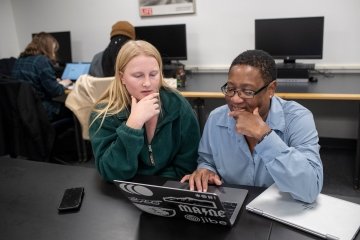

Choosing a Major
Explore, Discover, Declare
You might know exactly what you want to study right now. You might not. And maybe you’re somewhere in between. It’s okay to be uncertain about what you want to major in! The beauty of a St. Lawrence liberal arts education is that no matter where you are in deciding, we give you plenty of time to explore.
Our students don’t have to declare a major until the second semester of their sophomore year, and everyone at St. Lawrence—from your professors and advisors to the Center for Career Excellence team—is here to help guide you through the discovery process.
Personal Academic Advising

You will have faculty advisors in your corner even before you move to campus and throughout your academic career. When you’re assigned a First-Year Program, you’ll find out who your advisor is and work with them to create your schedule and start mapping out all of the academic adventures you plan to pursue.
As you take more courses that interest you, you’ll find your way to academic programs that inspire you and get a better sense of where you want to concentrate your studies. Have a discussion with your faculty advisor and a professor or two in the major you’re interested in. When you’re ready to declare a major, you’ll transition to a faculty advisor in that program.
Pursue What You Love
As you dig into courses that spark your curiosity, you may discover you have multiple academic passions. Instead of choosing between them, you can embrace your academic curiosity by choosing to declare a double or combined major, or a minor.
Double Major
To achieve a double major, you’ll pursue concentrated work in any two established majors and meet the course requirements for each—and the combinations are endless. English and neuroscience. Performance and communication arts and psychology. Philosophy and biology. Our undergraduate course catalog is your oyster.
Combined Major
A combined major is different from a double major in that you are not completing all requirements for both majors, but rather pursuing a pre-defined combination of two fields into a single interdisciplinary major. Our combined majors demonstrate the extent to which our faculty and academic programs partner and collaborate with others. Think anthropology and African studies, geology and environmental studies, or international economics and Spanish.
Minor
Choosing a minor is not required, but is another way to explore everything that interests you. Most departments and programs offer a minor and they can be declared as late as your senior year. Students with a single major may elect up to two minor fields; students with a double major may elect one minor field.
Majors & Minors
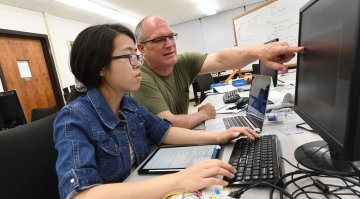
There aren’t any boundaries on your capacity to learn. Whether it’s inside our classrooms and labs or through adventures across the North Country and around the globe, our liberal arts experience and professors will encourage you to ask big questions and explore bold ideas.
Your Academic Adventure
When it comes to choosing your major, you’ll have plenty of options, support, and flexibility.
Majors
Minors

Multi-field Major
Design an academic adventure of your own. Combine multiple interests and create your own track with our multi-field major option.

Most Accessible Professors
Princeton Review, 2026
Conduct research
And nearly every student enjoys at least one experiential learning opportunity
of St. Lawrence students study off-campus at least once
of students study more than one discipline
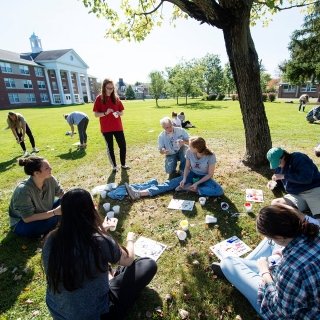
First-Year Program
A built-in web of support from the moment you step on campus, our first-year program sets you up for success both inside and outside of the classroom.

Sophomore Success Initiative
Get more out of your sophomore year with specialized courses, research opportunities, and even internship experiences that give you a clearer sense of your academic and career interests.
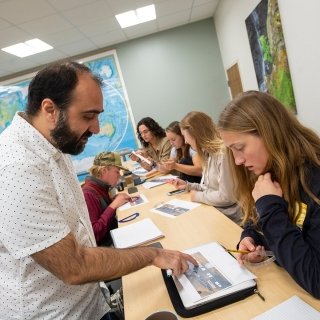
Advising Toolkit
Get quick answers to your questions about academic requirements and policies, course registration, and our approach to advising.
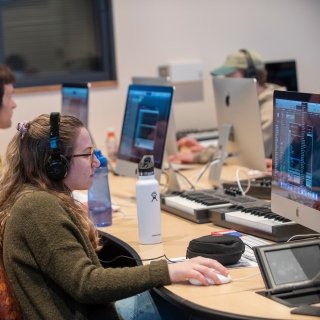
Majors & Minors
There aren’t any boundaries on your capacity to learn. Whether it’s inside our classrooms and labs or through adventures across the North Country and around the globe, our liberal arts experience and professors will encourage you to ask big questions and explore bold ideas.
